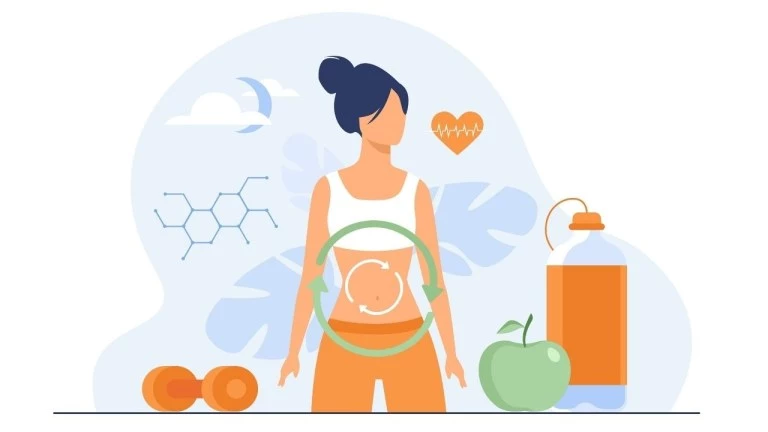Milk Allergies in Babies: Causes, Symptoms, Treatment in 2022
Milk is vital for the growth of babies. After crossing the exclusive breastfeeding stage of the infant, parents move towards animal milk sources, especially cow’s milk. They feed milk directly or add it to many weaning food recipes.
Cow’s milk is the base of most infant formulas. But, do you know, milk is the common allergen and it is important for parents to be aware of milk allergies in babies.
Here, Mindved, tells you what milk allergy is, can we give cow’s milk to babies? is the milk allergy the same as lactose intolerance, causes of milk allergy, symptoms and treatment of milk allergy, etc.?
What Is a Milk Allergy?

Milk allergy is an adverse immune reaction to the proteins present in the milk and products containing milk.
Of the total milk protein, about 80% is casein and 20 % is whey protein, and each of these has different proteins, which can cause an allergic response.
Cow’s milk contains more than 20 protein fractions. The crucial allergens belong to casein protein (alpha-s1-, alpha-s2-, beta-, and kappa-casein) and whey proteins (alpha-lactalbumin and beta-lactoglobulin)
A cow’s milk allergy (CMA) is also known as Cow’s milk protein allergy (CMPA), it is estimated that it affects 7 percent of babies under 1 year, though most of the children are out of it by 5.
There are two types of CMA- rapid onset and delayed onset. In rapid onset, symptoms begin within minutes of having cow’s milk. And, in delayed onset, symptoms typically begin several hours, or even days, after having cow’s milk.
Can We give cow’s milk to babies?
Cow’s milk is not recommended for babies for few reasons-
- The baby’s intestine is not properly developed to digest non-human milk.
- Cow milk can interfere with iron absorption and make your baby iron deficient.
- Cow milk has a higher concentration of proteins, sodium, calcium, vitamin D, etc. which can cause a burden on a baby’s digestive system.
Is The Milk Allergy Same as Lactose Intolerance?
Milk allergy and lactose intolerance, both occur due to milk but these are different.
Milk allergy is an immune system reaction to milk protein. Lactose intolerance occurs due to the small intestine cannot produce lactase enzyme which is essential for the digestion of lactose sugar. In short, milk allergy is related to the immune system while lactose intolerance is related to the digestive system.
Causes Of Milk Allergies in Babies
As we have seen earlier, the immune system reacts with milk proteins- (Casein and whey proteins) and causes allergic reactions. In these reactions, different chemicals are released and the allergy is classified into three categories based on these causes.
IgE-mediated reactions, non-IgE-mediated reactions, and mixed IgE and Non-IgE reactions
IgE-mediated reactions: In this immune system releases histamine and other chemicals when reacted with milk protein. Here symptoms usually occur within 20-30 minutes of consuming milk proteins up to 2 hours later.
non-IgE-mediated reactions: T cells are responsible for triggering the symptoms. Symptoms appear from 48 hours up to a week after consuming milk proteins.
mixed IgE and Non-IgE reactions: Here you found the combination of IgE-mediated reactions and non-IgE-mediated reactions.
Symptoms Of Milk Allergies in Babies
Skin reactions:
- Skin hives, Rashes: Red, dark pink rashes all over the body and tends to be itchy, or eczema
- Swelling on the face: most often swelling is found on eyelids, mouth, tongue, cheeks, and lips.
Gastrointestinal reactions:
- Nausea, Vomiting: constant feeling of nausea, sometimes followed by vomiting
- Abdominal Cramps: Stomach cramps and severe pain across the entire abdominal region.
- Diarrhea: Loose and frequent stools which may contain mucus or blood
- Gas/ Bloating: The stomach may look slightly larger than normal and feel hard to touch.
Respiratory or Hay fever-like symptoms:
such as the runny nose or nasal congestion, sneezing, watery eyes.
Some severe allergic symptoms come rapidly, such as swelling in the mouth/ throat, wheezing, cough, shortness of breath, noisy breathing, etc.
Symptoms of Lactose Intolerance include –
diarrhea, bulky, frothy, and watery stools, vomiting, stomach rumbling and pain, passing wind and crying while passing stool, irritability, etc.
Diagnosis Of Milk Allergies in Babies
- By searching for suspected food: The doctor may ask you to eliminate the milk from the baby’s diet. If the existing symptoms and the baby does not display the symptoms again, then it is concluded that the baby has a milk allergy.
- Skin prick test: In this test, a small quantity of diluted allergen, milk protein are injected into the upper layer of skin. If itchy bumps develop at the site of injection, it indicates milk allergy. This test is not suitable for babies below six months of age.
- Blood test: In this method, the presence of Immunoglobulin E (IgE) antibodies is checked in the blood. This test gives an accurate diagnosis.
Management and Treatment for Milk Allergies in Babies
Milk allergy cannot be treated, only managed.
- The only way to manage a milk allergy is to avoid milk and items containing milk products.
- Use an auto-injector containing epinephrine (adrenaline), is the only treatment for anaphylactic shock.
- Use an extensively hydrolyzed elemental formula or a casein-hydrolysate formula after consulting with a pediatrician. In these hypoallergic formulas, the milk protein is broken down into smaller amino acids chains that do not trigger an immune system response.
- Amino acids formula is also recommended in severe symptoms or your baby has trouble with hydrolyzed formulas.
- Alternatively, your infant’s doctor may recommend a soy-based formula or almond milk formula as an alternative for babies with milk allergies.
- The parents of babies who have milk allergies must read ingredient labels very carefully before you feed it to your baby.
- Breast milk also you can consider as an alternative to cow’s milk in CMA babies and the mother can continue the breastfeeding for up to two years.
Read More:
FAQ:
Q. Do babies overgrow milk allergies?
A. Yes. The infants can outgrow milk allergy by the time they are 3- 4 years old. About 80 % of children outgrow milk allergy by the time they are 16 years old.
References:






